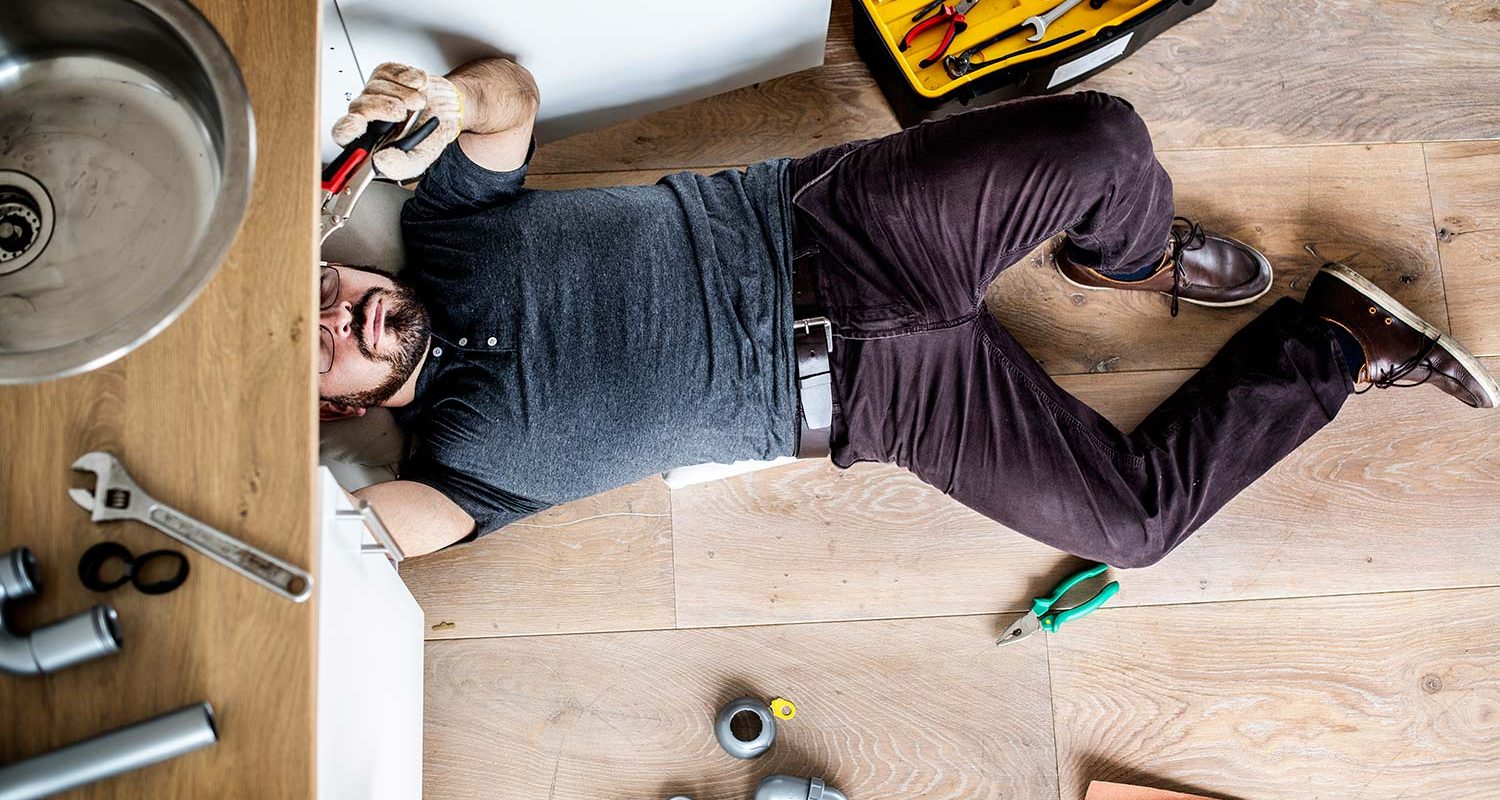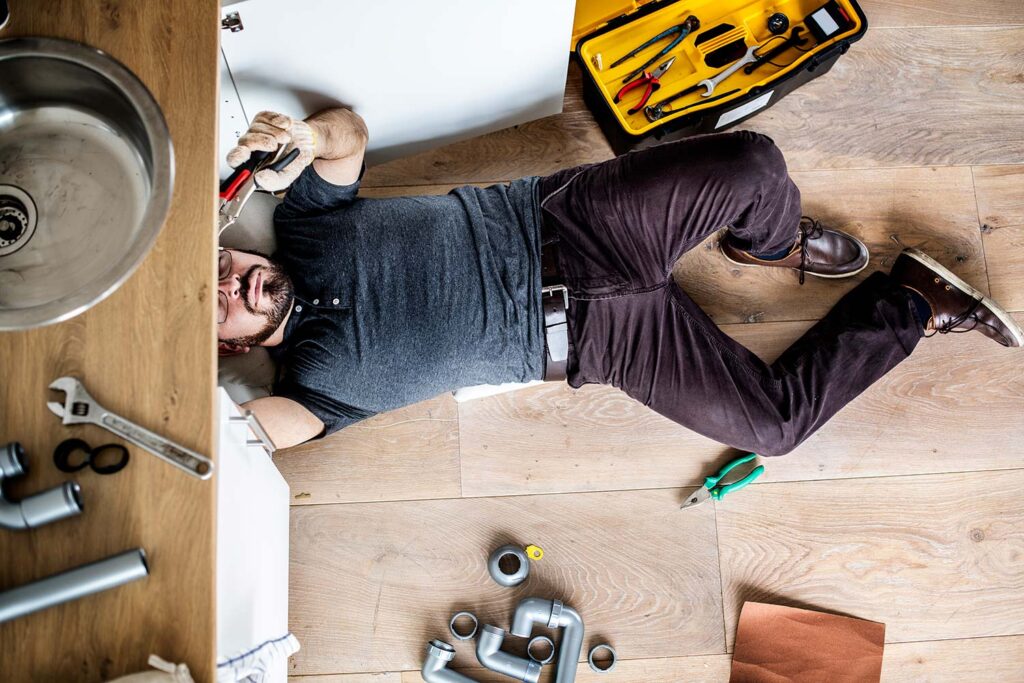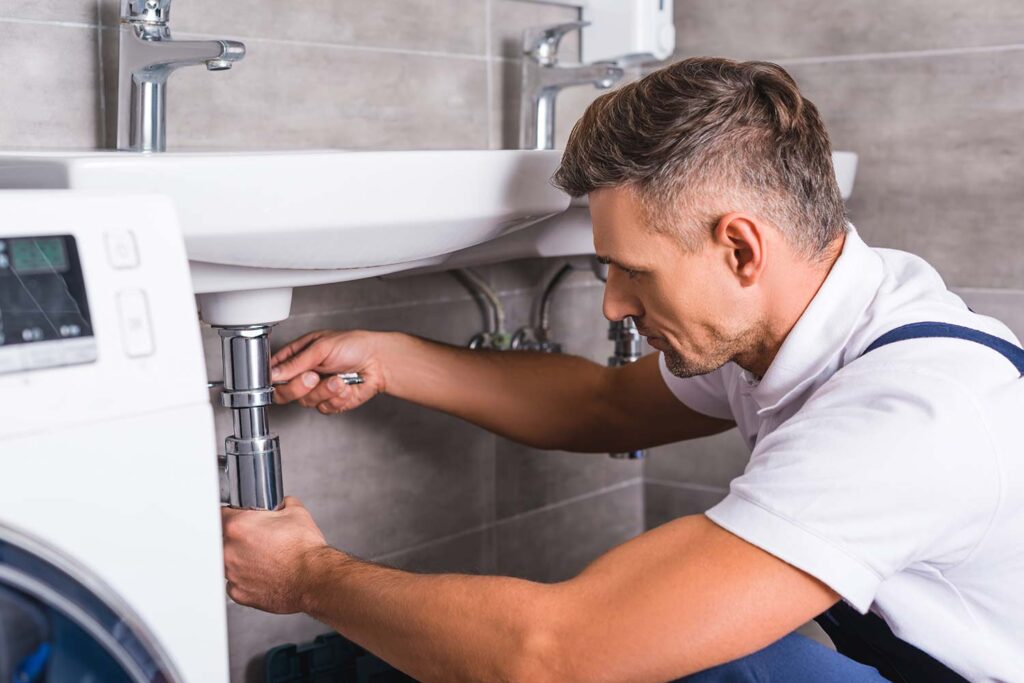Essential Plumbing Maintenance Tips Every Homeowner Should Know

Plumbing issues can strike at any time — and often when you least expect them. Whether it’s a dripping faucet or a clogged drain, the inconvenience and cost can pile up fast. That’s why every homeowner should follow basic home plumbing maintenance practices to avoid surprise repairs.
With these plumbing maintenance tips, you’ll prevent costly damage, extend the life of your plumbing system, and protect your home investment.
1. Watch for Early Leak Signs
Leaks often start small — but they don’t stay that way. A minor drip can waste gallons of water and drive up your water bill.
Here’s how to spot leaks early:
- Monitor your water meter — if it keeps running while all taps are off, something’s wrong.
- Look for water stains on walls, ceilings, or cabinets.
- Sniff for musty odors — a sign of hidden mold caused by moisture.
Pro Tip: Install a smart leak detector to alert you early before any real damage happens.
2. Learn How to Fix a Leaky Faucet
One of the most common household problems is a dripping faucet. Luckily, it’s also one of the easiest to fix.
Quick steps for how to fix a leaky faucet:
- Turn off the water supply under the sink.
- Unscrew the faucet handle and remove the cartridge.
- Replace worn-out washers or O-rings.
- Reassemble and turn the water back on.
This simple fix can save hundreds of gallons of water yearly. It’s a basic home plumbing maintenance skill every homeowner should know.
3. Keep Your Drains Clean and Flowing
Clogged drains are more than just annoying — they can damage your pipes over time.
Drain care essentials:
- Use sink and tub strainers to catch hair and debris.
- Pour a mix of baking soda and vinegar weekly to dissolve minor clogs.
- Avoid chemical drain cleaners — they can corrode pipes.
Healthy drains mean a healthy home. Clean drains also reduce foul odors and backup issues.
4. Check Water Pressure Regularly
Water pressure that’s too high can damage pipes, while low pressure might hint at a leak.
How to test your pressure:
- Use a cheap pressure gauge from your hardware store.
- Ideal pressure is between 40–60 PSI.
- If it’s over 80 PSI, install a pressure regulator.
Maintaining balanced pressure is one of the smartest plumbing maintenance tips for long-term pipe health.
5. Flush and Inspect Your Water Heater
Water heaters need love too! Without maintenance, sediment builds up, reducing efficiency and lifespan.
Water heater care checklist:
- Flush the tank once every 6–12 months to remove sediment.
- Check the anode rod for corrosion every 2–3 years.
- For tankless heaters, have a pro clean the system annually.
A clean heater heats faster, uses less energy, and lasts years longer.
6. Know What NOT to Flush
Toilets are not trash cans. Flushing the wrong items is a fast track to clogs and overflows.
Only flush:
- Human waste
- Toilet paper (preferably septic-safe)
Never flush: wipes (even “flushable”), sanitary products, cotton balls, or paper towels. These items don’t break down easily and clog the system.
7. Winterize Your Pipes Before Cold Weather
Frozen pipes can burst and flood your home. Protect them before the cold hits.
Winter plumbing prep:
- Wrap pipes in insulation, especially in attics and garages.
- Seal gaps or cracks near plumbing lines.
- Disconnect and drain outdoor hoses.
A little prep saves big repair bills in winter!
8. Schedule Annual Professional Inspections
Even if you’re handy, a plumber sees things you don’t. Book an inspection once a year — or more often for older homes.
Pros can help with:
- Camera inspections of sewer lines
- Checking underground leaks
- Replacing outdated plumbing systems
- Keeping you compliant with local codes
Many homeowners Google “basic home plumbing maintenance” but skip the expert check. Don’t make that mistake.
9. Install Plumbing-Friendly Fixtures
From low-flow toilets to modern faucet aerators, today’s fixtures save water and reduce strain on your pipes.
Benefits include:
- Lower water bills
- Fewer clogs
- Better water pressure balance
Ask your plumber about WaterSense-certified products — they meet EPA water efficiency standards.
10. Set a Monthly Maintenance Routine
Create a simple checklist to follow every month:
- Check under sinks for drips
- Flush the water heater (quarterly)
- Test water pressure
- Clean faucet aerators
- Pour vinegar mix into drains
Stick to it and your system will thank you!
Frequently Asked Questions (FAQs)
Q1: What are the most important plumbing maintenance tips for beginners?
Start with simple tasks like checking for leaks, cleaning drains with vinegar and baking soda, and learning how to fix a leaky faucet. These are easy and help prevent bigger issues later.
Q2: How often should I inspect my plumbing system?
Do a quick visual check every month and schedule a professional inspection once a year. Older homes may need more frequent inspections.
Q3: What should I do if I notice low water pressure?
Check for clogs in faucets or showerheads first. If it continues, use a pressure gauge to test your home’s water pressure. You might need a pressure regulator.
Q4: Can I use chemical drain cleaners?
It’s better to avoid them. Harsh chemicals can damage your pipes over time. Instead, use natural alternatives like baking soda and vinegar or call a plumber for stubborn clogs.
Q5: Is it worth hiring a plumber for routine maintenance?
Yes. A licensed plumber can catch hidden problems early, ensure your system follows local codes, and help extend the life of your plumbing.
Conclusion
Staying on top of your plumbing system doesn’t require a plumbing license — just a little awareness and a few smart habits. From learning how to fix a leaky faucet to setting up a monthly maintenance checklist, these plumbing maintenance tips will save you from costly repairs and water damage.
Whether you’re new to homeownership or just looking to improve your routine, proper plumbing care pays off in peace of mind. And when in doubt, don’t hesitate to call a pro for expert help.
For more information or to book a service, Contact us or call today!
Recent Post
Essential Plumbing Maintenance Tips Every Homeowner Should Know
Essential Plumbing Maintenance Tips Every Homeowner Should Know Plumbing issues…
Why Choose Azim Handyman Services for Your Home Improvement Needs
Why Choose Azim Handyman Services for Your Home Improvement Needs…


